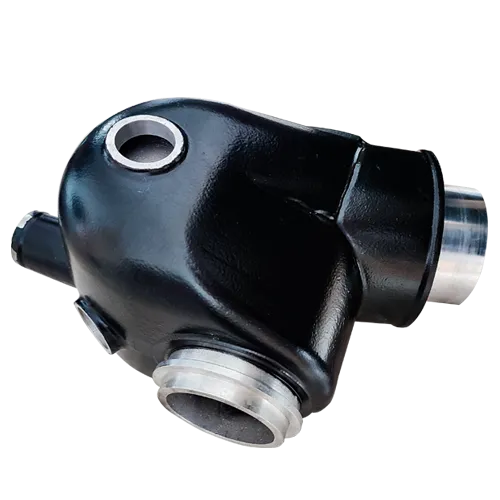Mobile:+86-311-808-126-83
Email:info@ydcastings.com
Engine-Driven Water Pumps for Automotive Applications and Their Efficiency Benefits
The Role of Water Pumps in Automotive Engines
Water pumps play a critical role in the functioning of automotive engines. They serve as an essential component of the engine’s cooling system, ensuring that the engine operates at an optimal temperature. Understanding how water pumps work and their significance can help vehicle owners maintain their cars more effectively, thereby extending the life of the engine and enhancing performance.
The Role of Water Pumps in Automotive Engines
Most automotive water pumps are of the centrifugal type, which utilizes a rotating impeller to create a high-speed flow of coolant. The coolant enters the pump from the engine and is propelled out towards the radiator, where it releases the absorbed heat into the atmosphere. This process is crucial during heavy engine load conditions when the temperature can rise significantly. By maintaining an efficient flow of coolant, the water pump ensures that the engine remains within the manufacturer's specified temperature range.
water pump engine car

The water pump operates in conjunction with a thermostat, which is a temperature-sensitive valve that regulates coolant flow. The thermostat opens and closes based on the temperature of the coolant; it allows coolant to flow to the radiator only when the engine reaches its optimal operating temperature. Before that point, the water pump circulates coolant only within the engine to facilitate quicker heating and efficiency.
Over time, water pumps can experience wear and tear due to continuous use, leading to potential failure. Common signs of a failing water pump include leaking coolant, an unusual increase in engine temperature, and a loud grinding noise when the engine is running. If any of these symptoms occur, it is essential to address the issue promptly, as neglecting a failing water pump can result in overheating and extensive engine damage.
Maintenance of the water pump is often overlooked, but it should be included in routine vehicle check-ups. Regularly checking coolant levels, inspecting for leaks, and replacing coolant as recommended can help prolong the life of the water pump. Additionally, it's crucial to replace the water pump if it shows signs of failure, especially if the vehicle has reached a high mileage or if the timing belt needs to be changed. Many mechanics recommend replacing the water pump alongside the timing belt since both components are in close proximity, reducing labor costs in the long run.
In conclusion, water pumps are vital for the efficient functioning of automotive engines. They ensure that the engine maintains a stable temperature, preventing overheating and potential damage. Regular maintenance and awareness of the signs of water pump failure can save car owners from costly repairs and ensure their vehicle runs smoothly for years to come. Understanding the importance of this component enhances vehicle ownership experience, promoting better care and longevity of the engine.
-
Why Should You Invest in Superior Pump Castings for Your Equipment?NewsJun.09,2025
-
Unlock Performance Potential with Stainless Impellers and Aluminum End CapsNewsJun.09,2025
-
Revolutionize Your Machinery with Superior Cast Iron and Aluminum ComponentsNewsJun.09,2025
-
Revolutionize Fluid Dynamics with Premium Pump ComponentsNewsJun.09,2025
-
Optimizing Industrial Systems with Essential Valve ComponentsNewsJun.09,2025
-
Elevate Grid Efficiency with High-Precision Power CastingsNewsJun.09,2025











